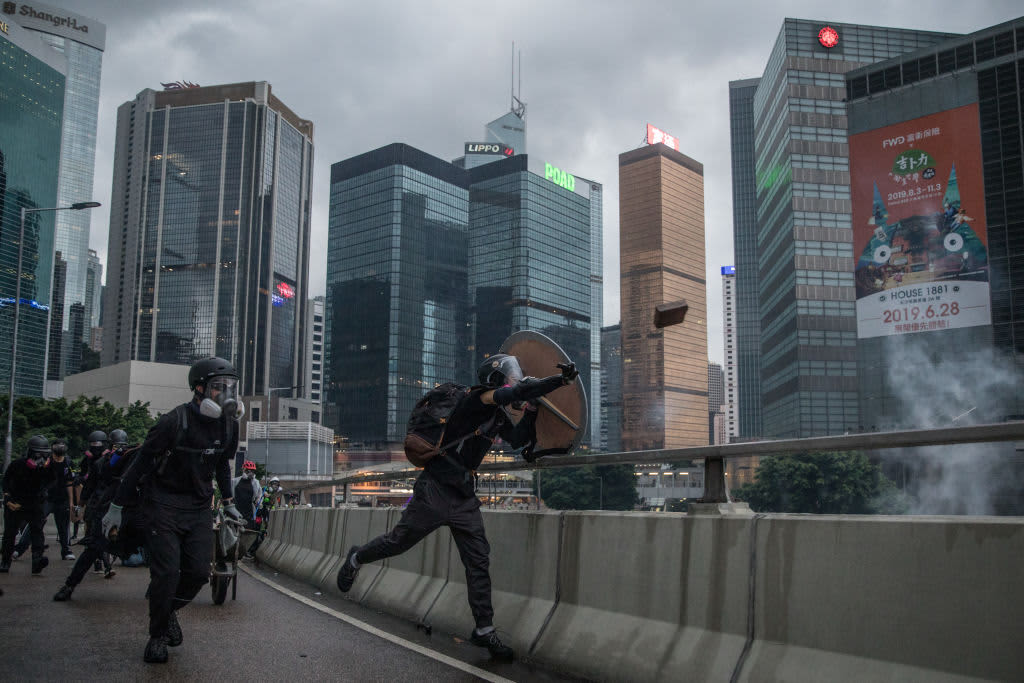There’s little evidence to suggest that money is being moved out of Hong Kong amid ongoing unrest in the city that has lasted for months, according to two top executives.
“I can say to you that we’re seeing very little panic, that we’re seeing very little evidence of flight,” John Woods, Asia Pacific chief investment officer at Credit Suisse, told CNBC on Tuesday. “It seems at least both depositors and businesses are not moving money in any meaningful way.”
“There is a lot of talk about perhaps capital flight, but we are not seeing any sign of that,” added Tan Min Lan, head of the Asia Pacific chief investment office at UBS Global Wealth Management.
The protests over a now-suspended extradition bill which would have allowed China to potentially freeze assets in the city, initially sparked talk that Hong Kong tycoons have started moving their personal wealth offshore. Later, with the deepening unrest, bankers and wealth managers reportedly said that they were receiving more queries from individuals to move their funds to Singapore.
A protester throws a brick during clashes with police outside the Central Government Complex during an anti-government rally on August 31, 2019.
Chris McGrath | Getty Images News | Getty Images
But Woods told that the indicators being watched by his team — on funds moving out of Hong Kong — “are essentially flat.”
“These are indicators which suggest money is actually leaving the Hong Kong territory, or for example, deposits in Hong Kong dollars being unwound,” he said. “We’re seeing absolutely no sign yet of that behavior.”
Hong Kong has been rocked by a protracted period of protests since June, that has evolved into a wider fight for democracy, raising concerns over the outlook for its economy.
In August, Hong Kong Chief Executive Carrie Lam warned that the city’s economy faces a risk of downturn amid the unrest. The government announced an economic support package worth $2.544 billion, saying that the 2019 GDP growth is expected to be lower at 0% to 1%, from the original 2-3%.
Meanwhile, Hong Kong’s private sector activity declined at the fastest pace in more than a decade in August, a business survey showed on Wednesday, as an escalating trade war and the local unrest hit all aspects of demand.
‘Very solid’ currency peg
For decades, the Hong Kong dollar has been pegged to the greenback.
To ensure stability of its currency, the Hong Kong Monetary Authority — seen as a de-facto central bank for the city — intervenes in the foreign exchange market. For example, if the Hong Kong dollar weakens too much, it will step in to buy the currency with its foreign exchange reserves.
The Hong Kong dollar is pegged in a tight range of around HK$7.75-7.85 per U.S. dollar, but has been weakening this year.
But Tan said the peg appears stable amid the unrest. “The peg is very solid because the currency in circulation is backed 1.7 times by (foreign exchange) reserves,” she told CNBC’s “Street Signs” on Tuesday. “The (foreign exchange) reserve is huge, we’re talking about 435 billion U.S. dollars.”
“For all long as there is a political will to actually hold the peg and there’s no reason why there isn’t … it’s difficult to envisage how the peg may go,” Tan added.
— Reuters contributed to this report.
